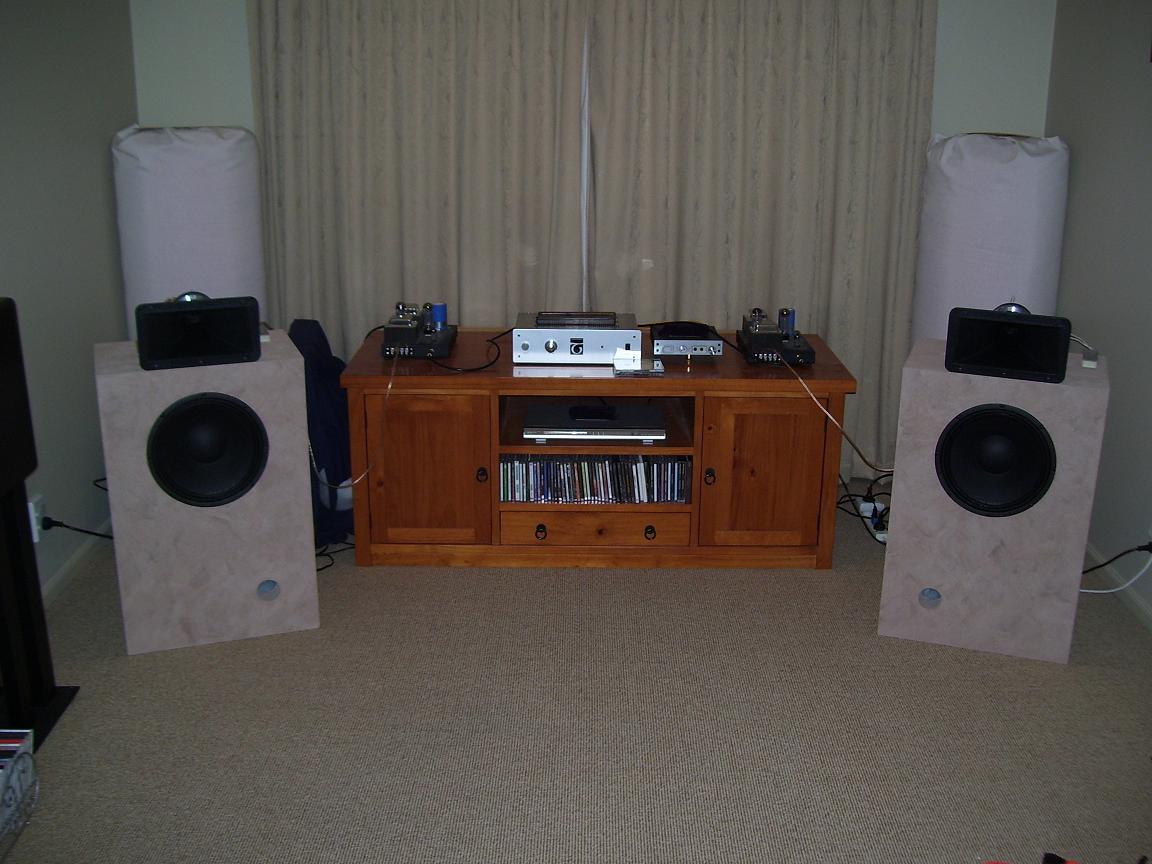There are lots of website out there giving advise on how you should go about buying your first hi-end stereo system. Although many of them give good advices, I found most of them basically end up saying ‘go and listen to as many equipment as possible and decide yourselves’. While this is true to a certain extend, many newbies actually do not know where to start. They do not know what type of component they should be getting – bookselves speakers or floorstanders? Integrated amp or separates? Should I spend more money on the speakers or the CD player? So in this article, I will simply tell you what I think and what is most likely to work, rather than telling you to find it out yourself.
If you are buying your first Hi-End stereo system, I assume you are spending NZ$2000-$5000, so the following discussions will be based on this budget unless otherwise stated.
So how should you go about picking your audio system? Which component in the system is most important and where should you spend your money? This is probably one of the most common discussions on forums and there are many different opinions. Some people say the source is the most important (garbage in garbage out), and some people say it is the loudspeakers. Some say you should get pre-power amp combo for best sound and some say you should get an integrated. The debate never ends. Here is my opinion:
Loudspeakers are by far the most important component in the system. Pick the speakers that you like, get an amplifier that can drive it well (forget about pre-power combo for now, go with integrated), then pick your source component with your remaining budget.
Those who promote the idea that the source is at least as important as the rest of the system usually base their argument on the ‘Garbage In Garbage Out’ theory. It sounds very sensible but it is actually very misleading. Here are the reasons:
1) Regardless of what you put in, if any part of your system is crap, you get garbage out. It doesn’t really matter which part of your system is crap, it will pollute the audio signal. The real question that we are facing is ‘Which Part of the System is Most Likely to Create Garbage?’
2) If you really believe in GIGO, that’s OK. But keep in mind that the input to the system is NOT your source component. It is actually the recording medium, or the actual data on your CD or LP or your hard disk. Your source is just another component in the system.
3) The source, even the cheapest DVD player on the market is likely to produce a near perfect signal (compare to other components in the system), while your loudspeakers will produce a signal that is not even remotely close to the original signal. Listen to two different CD players at different price points, and you are unlikely to notice any difference. If you listen to two different pairs of loudspeakers, even if they are the same brand or at the same price, I can guarantee that you can hear a difference. When I mention this, those who believe that the source is more important always fight back in anger and say ‘difference does not always mean better’. Yes, but if you can’t hear any difference, then how can you decide which one is better?
The loudspeakers basically determines the sound signature of your system. You can put whatever components before it, the basic signature of your loudspeaker will not change. A horn speaker will sound like a horn speaker, an electrostatic speaker will still be an electrostatic speaker. You just cannot change that. So it is very important to choose the speakers that you like.
Furthermore, your speakers have to interact with the amplifier, and more importantly, with your room. These create a lot of uncertainty and it is very important to match your speakers to your room well.
So my advice is – pick the speakers first, then select the rest of your system to get the best out of your speakers.



